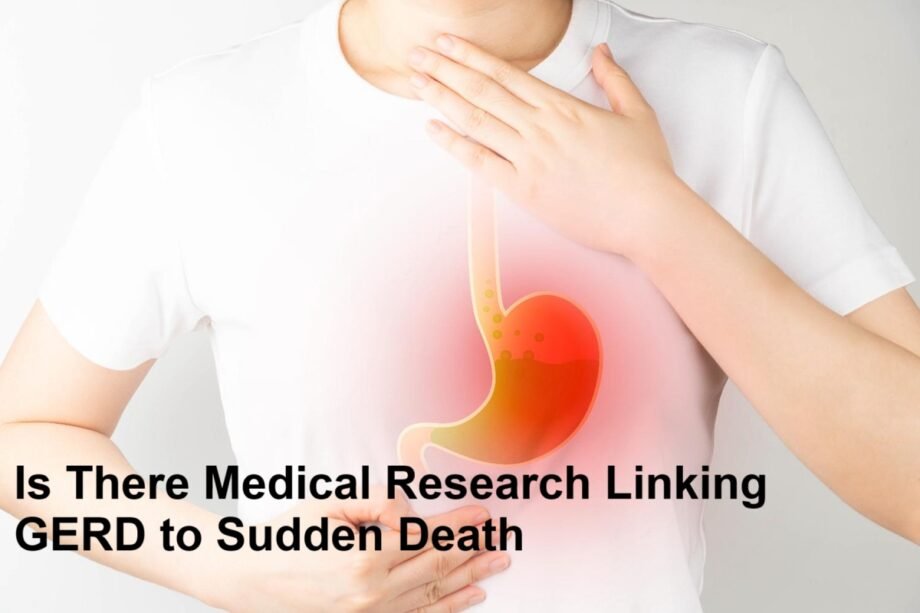Introduction
Gastroesophageal reflux disease (GERD) is a common digestive disorder characterized by acid reflux and heartburn. While it is typically considered a chronic but manageable condition, concern arises when questions emerge whether GERD can cause sudden death. This article explores the latest medical research to clarify if GERD can be linked to sudden death, highlighting expert insights, scientific findings, and preventive advice.
What Is GERD and How Does It Affect Health?
GERD occurs when stomach acid frequently flows back into the tube connecting your mouth and stomach (esophagus). This acid reflux can irritate and damage the esophageal lining, leading to symptoms such as heartburn, chest pain, and regurgitation. Chronic GERD can cause complications like esophagitis, Barrett’s esophagus, and even esophageal cancer in rare cases.
Research on GERD and Mortality: What Do Studies Say?
Medical literature and studies largely agree that GERD itself is not commonly a direct cause of sudden death. However, some research points to scenarios where GERD may contribute indirectly to fatal outcomes.
| Study / Source | Findings | Link to Sudden Death | Notes |
| Large population-based study (PMC4034667) | Some association between GERD symptoms and mortality | Possible but not definitive | Mortality analyzed includes cause-specific death |
| PubMed article (ID 10232864) | Cases of GERD cited as immediate or primary cause rare | Rare but documented | Differentiating contributing vs primary cause is challenging |
| Study on acid reflux during epileptic seizures (Purdue University) | Acid reflux may trigger laryngospasm leading to airway obstruction | Yes, in seizure-related sudden death | Mechanism involves acid-induced vocal cord closure |
| Studies on GERD and cardiac arrhythmias (Frontiers) | Potential link exists | Possible | GERD-induced irritation may affect heart rhythm |
| Research on proton pump inhibitors (PPIs) use and mortality (Washington University) | PPI users showed higher mortality risk compared to H2 blocker users | Indirect | Relates to GERD treatment side effects rather than GERD itself |
Possible Mechanisms Linking GERD to Sudden Death
- Laryngospasm and Airway Obstruction In rare cases, acid reflux can cause laryngospasm, a sudden closure of the vocal cords, which temporarily blocks airflow. This is particularly concerning in people experiencing epileptic seizures, as studies show acid reflux may trigger this deadly response.
- Cardiac Arrhythmias There is emerging evidence that GERD may provoke autonomic nervous system reactions or esophageal irritation that trigger arrhythmias—irregular heartbeats that can potentially lead to sudden cardiac death in vulnerable individuals.
- Complications from Chronic GERD Untreated or severe GERD may lead to esophageal ulcers or aspiration pneumonia, complications that if left untreated, could be fatal. While these outcomes are not sudden deaths directly caused by GERD, they reflect serious health risks linked to the disease.
What Experts Recommend for GERD Management and Prevention
- Timely Medical Attention:If you have chronic GERD symptoms, consult a healthcare provider for diagnosis and treatment to avoid complications.
- Medication Management:Use acid-suppressing medications such as PPIs as prescribed. Inform your doctor if you experience side effects or concerns about increased risks.
- Lifestyle Changes:Avoid triggers like spicy foods, caffeine, smoking, and large meals. Maintain a healthy weight and avoid lying down immediately after eating.
- Monitor Heart Health:Since GERD can influence cardiac rhythms in some cases, maintaining cardiovascular health is advised.
- Emergency Awareness:Seek urgent medical care if you experience severe chest pain, difficulty breathing, or sudden unexplained symptoms.
Conclusion
While GERD is not typically a direct cause of sudden death, medical research reveals certain rare but serious scenarios where acid reflux could contribute to fatal outcomes. Mechanisms such as laryngospasm in epilepsy patients and potential cardiac arrhythmias emphasize the importance of proper diagnosis and management. By following expert advice and maintaining vigilant care, individuals with GERD can significantly reduce health risks and lead safer lives.








